|
Considerably more so even than their vampire cousins, werewolf movies tend to follow a rigidly defined formula. It usually goes like this. A likeable fellow (and it's almost always a man) is unexpectedly bitten by a wolf that isn't a regular wolf at all. Over the course of the next few days or weeks, he begins to show signs of physical change, and on the night of the next full moon he transforms into a wolf-like creature and embarks on an indiscriminate killing spree, usually starting with animals and graduating to humans. Often, he will wake the next morning feeling physically invigorated but with no memory of what he has been through the night before. Before his first full transformation, there's a good chance he will meet and fall for a girl who will initially be unaware of this lycanthropic affliction, but who will come to love him enough to emotionally stick with him even after the terrible truth is revealed. It rarely ends well, with the werewolf sub-genre unique in its requirement to kill off its leading man before the final credits role, usually with the ubiquitous silver bullet or other sharply pointed piece of silver weaponry.
By the early 1980s, this by-then familiar formula was ripe for revisionist game-playing, which gave rise to two of the finest werewolf films of all in the shape of Joe Dante's The Howling and John Landis's An American Werewolf in London, the second of which followed the above-detailed structure to the letter but played hugely inventive and entertaining games with it on the way. These seminal works also threw down the gauntlet for any subsequent werewolf movie to pick up and run with, inviting them to top the creativity of both films. Almost 40 years later, I'm still waiting for a genre title that even comes close.
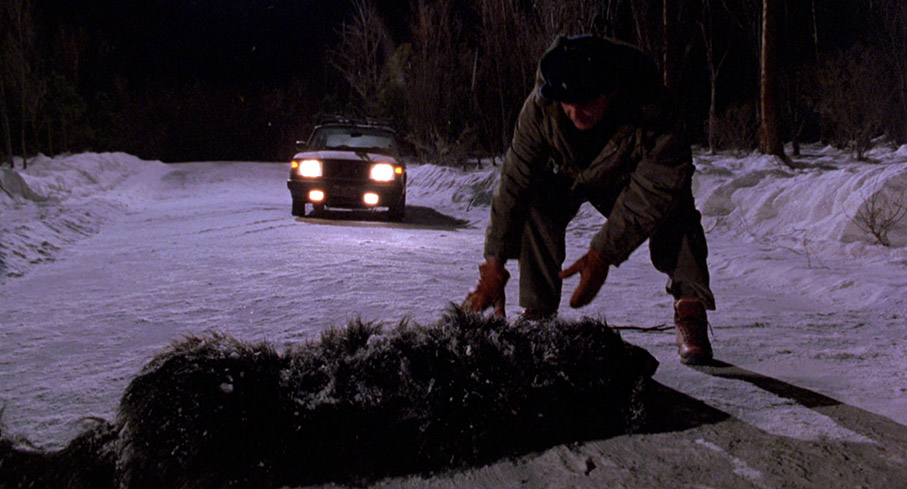
If it seems that I've chosen to lay my critical cards on the table before I've even started writing about the film under review here, I might as well go the whole hog and reveal how far back my prejudice stretches. I first saw Wolf back in 1994 on its initial cinema release, on a first date with a girl who had a fondness for horror movies. Neither of us were impressed. When asked by others to sum up my view of the film at the time, I tried to imagine the meeting in which the idea was first pitched to the studio backers: "What happens, right, is a guy is bitten by a wolf, and he starts turning into a werewolf! Here's the thing, though – the guy will be played by Jack Nicholson!" If you're being cynical, then that overly simplistic summary still stands. The basics of the plot are formula-rigid, and one of the principal appeals of the movie is watching the expressive Nicholson develop and exhibit convincingly wolf-like behaviour. There's also no build-up at all to the story. Nicholson's character, Will Randall, is driving in snow at night after a business meeting in Vermont and runs over a wolf, and in the course of attempting to drag the creature off the road he is bitten by it. In no time at all, the process of gradual transformation has begun, by when he has hooked up with the inevitable girl. Yet while I still have a few issues with the film, all these years later with a good many more movies under my belt and shorn of the need to make an impression on my viewing companion, I approached it with considerably more tolerant eyes.
A perceived need to kick the story off as soon as humanly possible is presumably at the heart of an opening scene that still feels a little abrupt (though it does conclude with a superbly creepy shot of wolves observing Randall from the raised verge of the road), the expectation seemingly being that we'll care about Randall's safety not because we've got to know and like him – we haven't at this point – but because he's played by Jack Nicholson, and we all know him, right? Because we all know the rules of werewolf movie storytelling, there's no mystery here and few real surprises in the transformation that follows, which does mean that the audience is almost always well ahead of Randall in his quest to understand what's happening to him. Altogether more interesting is the impact this has on Randall's faltering career. The editor-in-chief at a prestigious publishing house, he loses his position to his ambitious younger protégé Stewart Swinton (played by a somewhat typecast but effectively oily James Spader) when the company is taken over by tycoon Raymond Alden (a quietly imposing Christopher Plummer). He's offered the glummest of consolation prizes, but as the effects of the bite start to take hold, the reinvigorated Randall starts hanging out with Alden's rebellious daughter Laura (Michelle Pfeiffer) and mounts an aggressive counter-attack to retake his position.
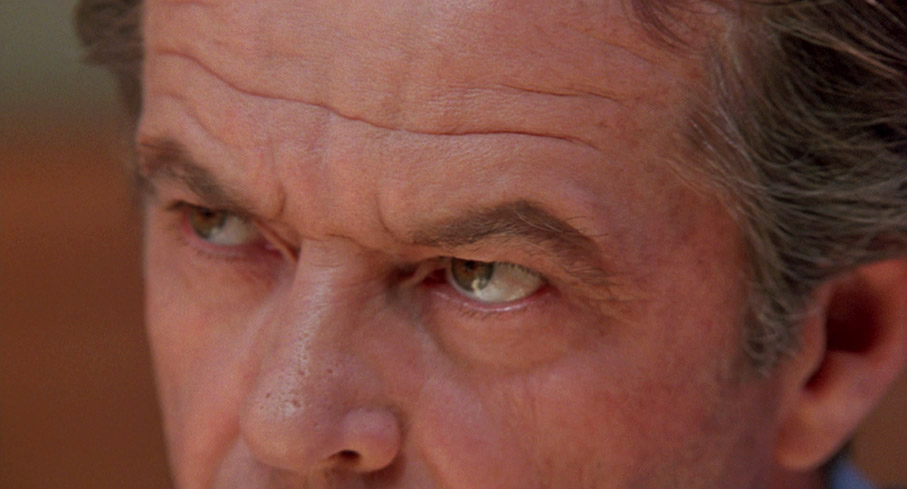
There are some interesting takes on the symptoms of transformation here, with Randall's increased vigour accompanied by sharper hearing and a keener sense of smell. This enables him to read private information about his work colleagues and even detect the scent of Swinton's cologne on the clothing of his wife Charlotte (Kate Nelligan), which leads to a confrontation in which the angry Randall's first instinct is to snarl and bite. He is also surprisingly aware of the nature of his condition, reasoning that the animal bite has somehow infected him with wolf-like characteristics. To this end, he pays a call on Dr. Vijav Alezais (a lovely Om Puri), an expert on the subject who gives Randall an amulet that will theoretically protect him from transforming, then unexpectedly asks his visitor to bite him, an ailing old man seeking the rejuvenation that the transformation into a wolf would bring. "It feels good being a wolf, doesn't it?" he asks him, which prompts a small smile of acknowledgement from Randall.
As the film moves into its second half, the metaphorical aspect starts to play an increasingly smaller role, and by the finale has been dispensed with completely in favour of what is effectively a werewolf punch-up with the terrified Laura as the prize. Though lacking the subtextual meat of the earlier scenes, this still has its small pleasures, notably the acrobatic leaps which the combatants use to attack their opponent, which are well enough staged and filmed not to look like the ramp-fuelled stunts that we all know they are. The film also breaks nicely with tradition in the manner in which its story concludes, about which it would be unfair of me to say more.
Wolf has been praised for taking a werewolf tale as seriously as a prestige drama, and as a studio work with respected director Mike Nicols at the helm, its production values are exemplary throughout – there's fine cinematography from Fellini regular Giuseppe Rotunno, an effective and sometimes unexpected score from Ennio Morricone, and An American Werewolf in London's Rick Baker is on board to handle the makeup effects. And the performances from the A-list cast are all first-rate, with Nicholson at close to his low-key best as Randall, Pfeiffer always convincing as the independently-minded Laura, and some nice support work from the likes of David Hyde Pierce and Prunella Scales (don't blink or you'll miss David Schwimmer's brief appearance as a cop from whom an infected Randall acrobatically flees). But there's also a sense that these high production values are sometimes standing in for the wit and invention that so distinguished the genre's modern high watermark thirteen years previously. The idea that lycanthropy could give someone an advantage in the world of business is a good one, strong enough to make me wish that the film had stuck with it and followed it through to its logical conclusion, instead of abandoning the metaphor in favour of having two alpha males slug it out over a girl.
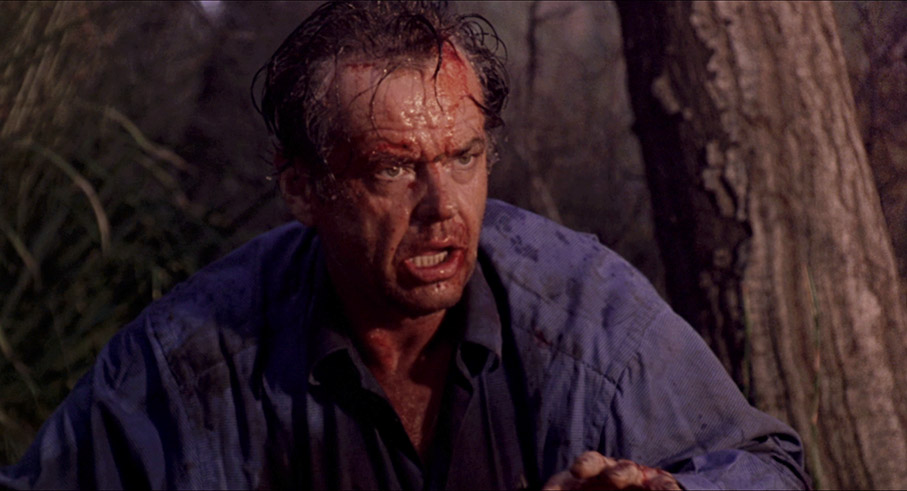
As a werewolf tale, Wolf is by default a horror movie but it rarely plays like one, being neither that scary nor remotely horrifying, and a little paradoxically is at its best before it moves into a full-blown werewolf territory, when Randall is in the early stages of his transformation and is gradually becoming aware of his physical enhancements. From the moment that he goes on a full moon hunt and kills his first prey, we start to find ourselves in more generically familiar territory – it's all solidly handled, but even back in 1994 we'd been here enough times before for these scenes to be saddled with an inescapable air of déjà-vu. There are still a number of neat touches in the second half – Randall pissing on his rival in the company bathroom with the calm proclamation that he's marking his territory is amusing and subtextually on the nose – and there's much to be said in favour of Nichols' consistently low-key approach, though this is likely to have some itching for him to crank things up a bit in the later stages. There's almost the sense that game plan here was to make a ‘respectable' werewolf movie, one untainted by the dark stain of exploitation horror, and while I'm now happy to acknowledge the film's merits and enjoy it for what it is, it still left me intermittently itching for the edgier, more cheerfully disreputable independent works that Wolf seems a little too keen to distance itself from.
A solid 1.85:1 1080p transfer of a film whose toned-down colour scheme and naturalistic look do not catch the eye in the manner of brighter-coloured and punchier lit works, but are attractively reproduced here. The contrast is generally well balanced and keeps things clear even when light levels drop, though the beefy blacks do sometimes eat darker picture information. The sharpness and image detail are both impressive, and there's no sign of damage or distracting dust spots. A fine film grain visible throughout – indeed, the image is crisp enough to make it easy to spot the occasional example of optical enlargement, as the grain here is slightly larger and more pronounced.
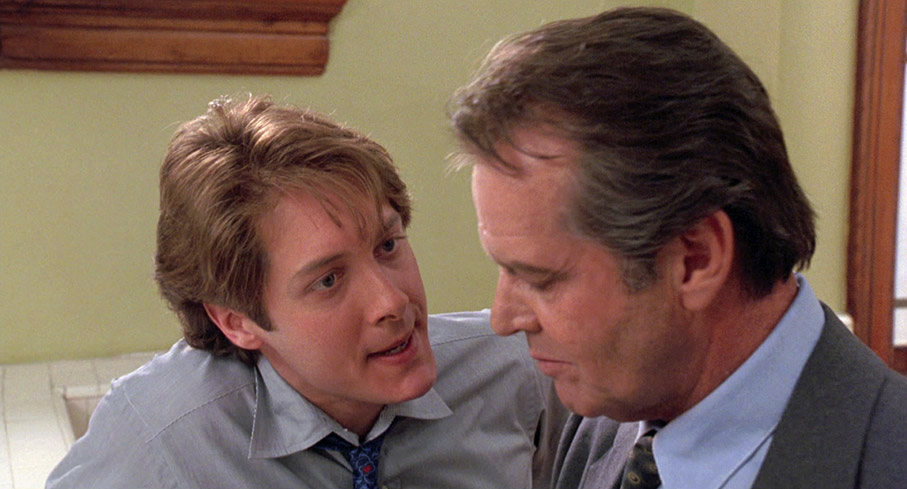
When it comes to the soundtrack, you can choose between Linear PCM stereo and DTS-HD Master Audio 5.1 surround. Beyond the spread of centre-weighted audio such as dialogue, there are no substantial differences between them, although the DTS track does intermittently feel more substantial, particularly in its reproduction of sound effects and Ennio Morricone's score.
Optional English subtitles for the deaf and hearing impaired are also available.
The Beast Inside: Creating ‘Wolf' (55:14)
A new documentary from Robert Fisher's Fiction Factory, built around interviews with Wolf producer Douglas Wick, co-screenwriter Wesley Strick and special make-up effects artist Rick Baker. Initially, Wick does most of the talking, covering everything from the genesis of the project to working with Mike Nichols, whom he interestingly describes as having "my favourite brain." Strick kicks in later to outline how he was brought in to rewrite Jim Harrison's original script, one he claims did not read like a script at all (it still sounds pretty cool), and reveals that the key instruction he received from Nichols was to "write me scenes I can direct." Unsurprisingly, Baker focusses on the make-up effects, though does lament the fact that the creation of the animatronic wolf had already been assigned to another effects house by the time he was brought on board. We learn that both Mick Jagger and Marlon Brandon were interested in playing Alden, and that a stunt man was knocked cold when thrown onto a flight of stone steps, an impact whose violence always had me wondering how the hell the effect was achieved. Baker also echoes my own view when he admits that he likes the film until it becomes a monster movie.
Cast and Crew Interviews
This folder contains a selection of brief 4:3 framed interviews with cast and crew members, which I'm guessing were shot for the original EPK or an earlier DVD release, though some have apparently have never been previously aired.
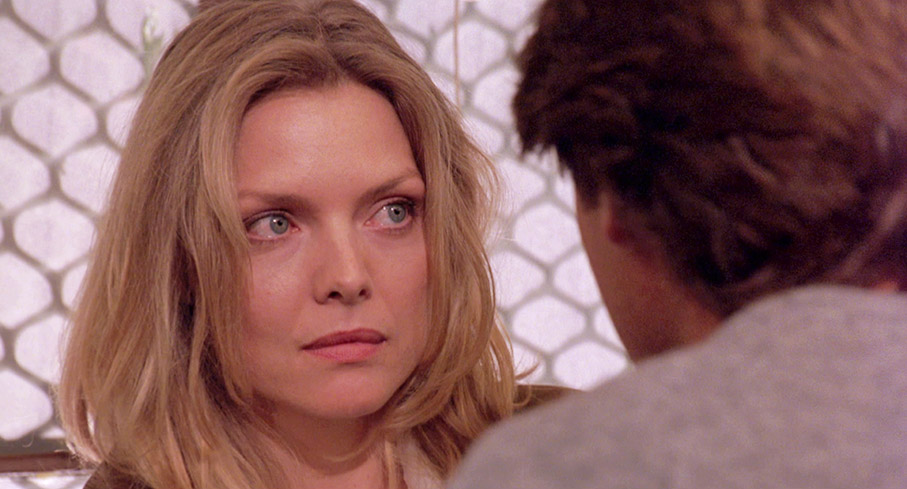
Mike Nichols (8:38) 4:3
Nichols talks about studying wolves and their behaviour, his long-standing friendship with Jack Nicholson, the concept of New York as a jungle in which people exist in and outside of cages, and his hope that people would watch the film and think, "My God, this is really happening." I particularly liked his offhand comment in which he compares the manner in which wolves are subservient to the pack leader to the behaviour of people in Hollywood restaurants.
Michelle Pfeiffer (0:50)
A micro-interview in which Pfeiffer has only time to provide a couple of sound bites about her role.
James Spader (2:03)
Spader talks briefly about wolves, the themes of the film, and his conviction that this is not a monster movie but closer to real life.
Kate Nelligan (1:42)
Nelligan talks about her character, the world in which the film is set, and working with Jack Nicholson.
Producer Douglas Wick (3:03) 4:3
Co-writer Douglas Wick discusses the genesis of the film, Jack Nicolson finding his "inner wolf," and what the film does differently to other werewolf movies.
Screenwriter Jim Harrison (2:53)
Writer of the first draft of the screenplay, Jim Harrison, seems uninterested in talking about the movie itself (in the documentary above, co-writer Douglas Wick reveals that Harrison wasn't happy that his script was re-written), and instead recalls a dream that inspired the story, one that he remembers as being a real event, and says how tired he is of how sex is portrayed in movies. I'll thus bet he was pissed that the sex scenes in his draft were subsequently cut out.
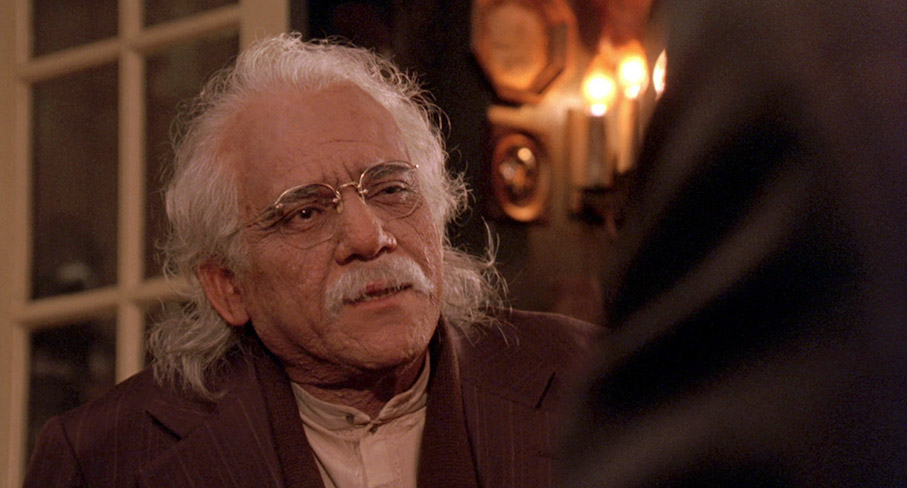
SFX Artist Rick Baker (1:33)
Baker confirms that this was not intended to be a horror movie (which it still is by default) and provides a quick overview of his own work on the film
Production Designer Bo Welch (2:04)
Production designer Bo Welch continues a developing thread by stating that Wolf is not a horror movie at all, but is instead a story of a man trying to get back in touch with his primal instincts and how these are oppressed by the city in which he lives.
B-Roll Footage (4:08)
A ramshackle and not that revealing collection of behind-the-scenes footage, underscored by music. It's here that I learned that Steadicam inventor Garrett Brown was the Steadicam operator on the movie (as he often was when a top-flight operator was required, of course).
Theatrical Trailer (2:08)
A serviceable trailer, framed 4:3 and including one sequence in which Jack Nicholson tosses all subtlety aside that didn't make it into the final cut.
Image Gallery
22 slides of promotional and production stills, plus a couple of posters.
Booklet
Another fine Indicator booklet that opens, as ever, with the main credits for the film, after which we have an authoritative essay in which Brad Stevens makes an intriguingly argued case for reading Wolf more as a comedy than a horror film. This is followed by extracts from promotional interviews given by Mike Nichols at the time of the film's release in which he once again suggests that Wolf is not a horror movie, provides some detailed background on the development of the screenplay, and talks about long editing process and working with Jack Nicholson. Finally, we have extracts from interviews with producer Douglas Wick on the film and its development, and extracts from three contemporary reviews.
Wolf divided opinion on its release and continues to do so, championed as a near-masterpiece by some and dismissed as a dull misfire by others. As is so often the case, I find myself stuck somewhere between these two extremes, appreciative of the film's qualities but still largely unexcited by the story as it plays out. But there's still good stuff in here, and if you're going to have it in your collection, then once again Indicator have delivered the version to own. For all my gripes, it still comes recommended.
|